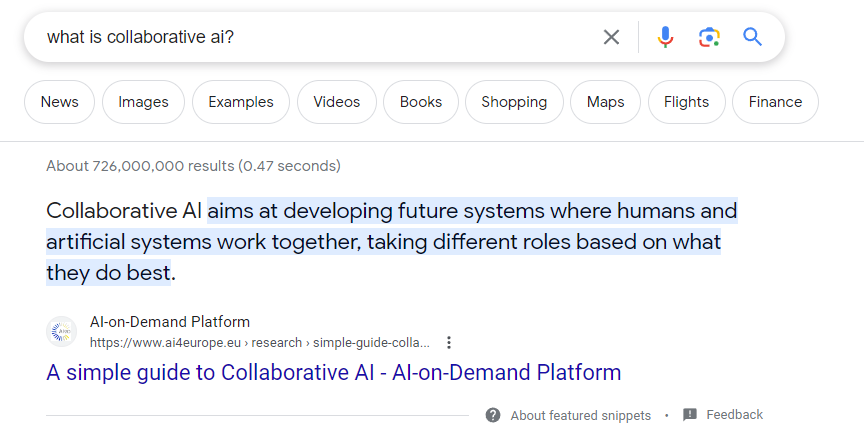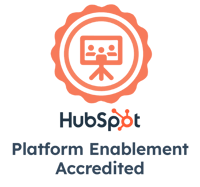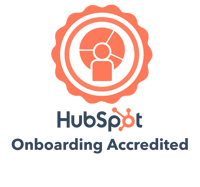AI is everywhere - and now it's coming to search.
In May, Google announced their new generative AI search would be launching soon, and in the weeks since we've seen a big algorithm update and the new search slowly rolling out to beta users.
This change is huge, and it's one you need to pay attention to. Here's what you need to know about Google's AI search update.
What You Need to Know About the Update
Google has a few different AI tools that have either launched recently or are in the process of launching, so first: let's narrow in on the focus of this blog and the recent update.
Google has augmented their search features with an AI-powered search. Right now, this tool is not available for all users. Currently, it's only available if you've opted into Search Labs, which is Google's beta testing program.
In typical Google fashion, the launch is complete with a video set to jaunty music:
This video gives an end-user look at what AI-powered search will look like when it's rolled out to all users. Now onto what you need to know about this update.
1. This is NOT the same as Google Bard
Google has also been making waves with another AI tool, Google Bard. With all this overlapping AI, it can get confusing which is which. Google Bard is for all intents and purposes a separate tool from search and is currently accessed via a different URL. Bard is the answer to ChatGPT, not necessarily a change to the current search tool.
Google Bard is a collaborative AI, and the new search features use generative AI. Now, this gets a bit confusing and pedantic, but it goes like this: Collaborative AI are tools designed to let humans and AI work together to brainstorm, create and discuss. It uses generative AI to achieve this - which is AI that analyzes data and translates it into words and images. The new search update also uses generative AI, but it's not necessarily designed with collaboration in mind. Rather, the goal of the new search is for you, the human, get more value from less input in your searches - to make search quicker and more helpful.
→ Related Content: How Will ChatGPT & Google's BARD Change Marketing?
It's worth noting that the roadmap video and blogs for new search do show a Bard-like functionality within search. So it's possible that Google may merge Bard and Search. But for now, they're different tools.
2. The update may have negatively impacted your SEO
While the new search isn't available to all users, Google has updated its algorithm to allow for the launch of this new tool. If you saw some negative impacts to your SEO score and rankings in April - June of 2023, that's why.
Google is a little cagey about exactly what these updates actually do - which makes sense, it's the search giant's proprietary algorithm and the "secret sauce" that serves as its competitive advantage - but we have seen a huge change across the board with most of our clients.
So if you start to see weird traffic numbers and dropping rankings don't panic just yet - it could just be from this update rolling out - and things should level out over time.
Concerned about your SEO? We can help with that
3. You're going to be able to do a lot more from the SERP
The coolest tease in this update is how much more you'll be able to do without having to click through links or bounce off of Google. The SERP (search engine results page) currently has a few helpful features that make it easy to answer your question without leaving - for example, featured snippets that answer a query in a few sentences.
 An example of a featured snippet for the search query: "what is collaborative ai?"
An example of a featured snippet for the search query: "what is collaborative ai?"
However, the options available right now aren't interactive and require you to click around to related queries, re-type a query or visit another website to complete your search. The new AI-powered search will let you interact with results - generating full answers right in search, allowing you to ask follow-up queries, and connecting a web of connected information together on one page. Some examples from Google's announcement post help illustrate how it could work:
Maybe you’re starting to map out a decision that you’d typically need to break down into smaller parts, like “Learning ukulele vs guitar.” Search will provide an AI-powered snapshot so you can get help understanding what factors to consider.
Sometimes you have a very specific question in mind, in which you’d benefit from seeing a variety of content from across the web. If you find your favorite old sweater in the back of your closet but quickly realize it needs some freshening up, search for “How to get an old coffee stain out of a wool sweater?”
Say you’re looking for removable wallpaper to spruce up your rental. Simply search for “Peel and stick wallpaper for kitchen” to learn about important factors, like if it’s easy it is to remove, and get a list of stylish options, including price, customer ratings and links to purchase. [...] And if you want to explore further, right under the snapshot, you’ll see the option to “ask a follow-up question” or select a suggested next step, which will take you into conversational mode.
The interactivity of this new search may mean that fewer users leave Google and go to your site - but it also means they know exactly where the information came from, which is excellent for your brand.
4. Intent is going to be more important than ever
Search intent is the "why" behind someone making a search online. Yoast breaks down all search intent into four basic categories of need: informational, navigational, transactional and commercial.
- Informational intent searches are based on gathering information, both basic and complex.
- Navigational intent directs users to a certain website.
- Transactional intent searches are based on retail or eCommerce.
- Commercial intent searches are used for future purchases.
- Keyword intent are searches that use specific words that clue you into their intent. Things like "buy, deal, discount" let you know that they want to purchase. Things like "how to, best way to" let you know they want information. This type of intent usually overlaps with one of the other four intents.
→ Related Content: Why You Should Use Topics, Not Keywords
You'll notice that a lot of the updates coming are designed with intent and audience in mind. For informational searches, users will have longer-form and generative content right within search. For commercial intent, users will have important questions answered in one place instead of needing to do the research across multiple sites.
This means that when you're making your content, it's going to be even more important to focus on intent over traditional SEO. The "secret sauce" to ranking highly on Google isn't going to be a simple checklist to follow: it's going to be creating good content that answers specific questions for specific audiences.
Google's new generative AI search isn't fully live yet - and we don't have an estimate on when it will be - which makes now the perfect time to start preparing for the future.
Website Grader: How Strong is Your Website?
How is your website ranking? Get your website’s grade and find out how!
Your website is a sales rep, providing prospects with the features and pricing of your offering. It also plays a role in customer service, answering questions about your products and services. Your website also serves as an HR team, answering questions about company culture and showing what positions your company currently has available. The list can go on and on…
Get Your Website Grade Today
Grade your website in seconds. Then learn how to improve it for free.





